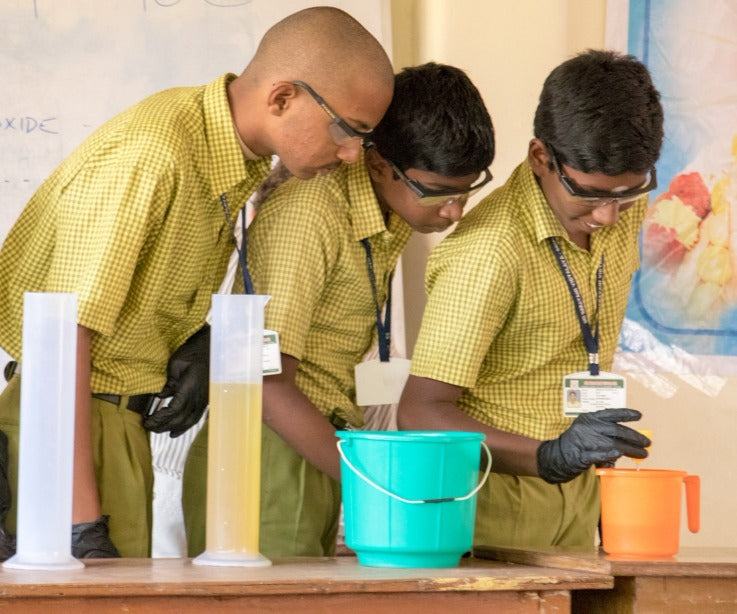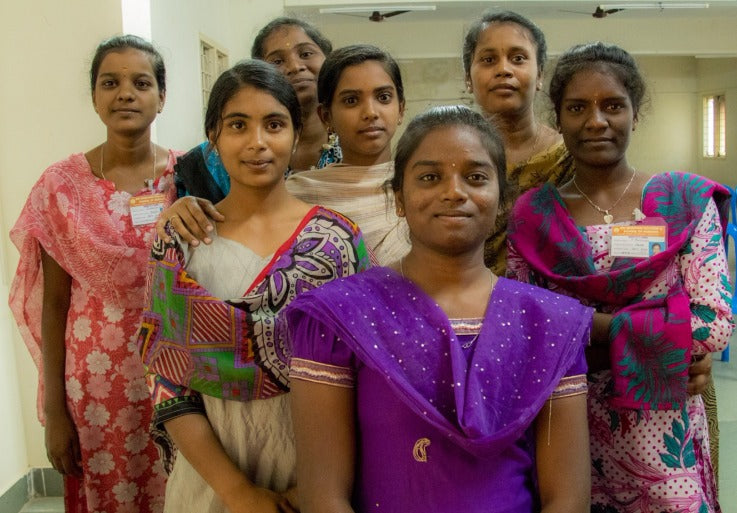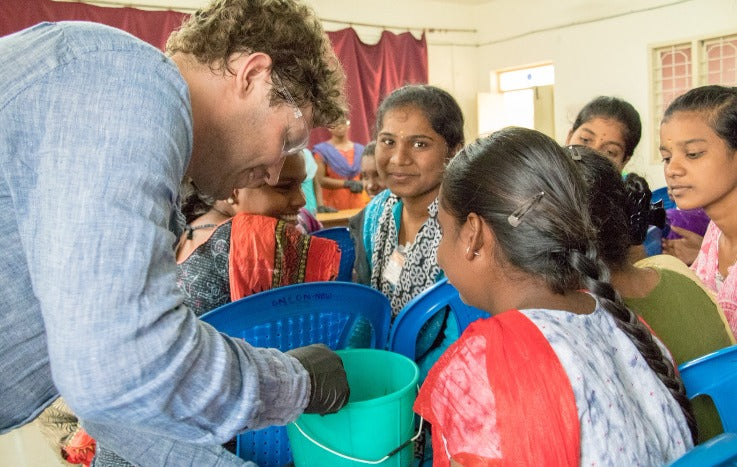Made in Canada—Free Shipping Over $50 CA & US
Made in Canada—Free Shipping Over $50 CA & US
Made in Canada—Free Shipping Over $50 CA & US
Made in Canada—Free Shipping Over $50 CA & US

March 22, 2018 3 min read
World Water Day, on 22 March every year, is about focusing attention on the importance of water and recognizing the global population who suffer from water related issues. This means more to me this year than ever before. I’ve just come fresh from rural India with two fellow team members at Rocky Mountain Soap. We teamed up with Project SHINE in India to help shape better habits to combat poor hygiene.
Project SHINE (Sanitation and Hygiene Innovation in Education), headed by founder Dr. Sheri Bastien in conjunction with the University of Calgary, the Norwegian University of Life Sciences, and CINIM (Canadian Institute of Natural and Integrative Medicine), aims to improve sanitation and hygiene; educating on the importance of habit and mindset by engaging local youth as agents of change in their local communities.

Travelling by road through the countryside of India en route to Sri Narayani Peedam, a temple located in Thirumalaikodi, three hours from the bustle of Chennai in India’s south, I felt somewhat conflicted at what I saw. Passing through the wide open countryside, stretches of rubbly outcrops were interspersed with the greenery of farmlands and lush palmyra trees that provide the wonderful nungu (ice apple) fruit that local vendors collect to sell the sweet juice and lychee-like flesh by the roadside.
Cows with brightly painted horns wandered confidently across the road while the traffic moved around the sacred animals, giving them a respectful wide berth while groups of wild dogs picked through the substantial litter by the roadside. Empty drink bottles, plastic bags and packaging that existed for their original purpose so briefly, clumped together in piles of rubbish.
As a river bent past the road, I saw a small group of men wash themselves and rinse their clothes in the murky brown waters. This is the same river where both upstream and downstream, other people and animals defecate. According to the United Nations, over 75 million people lack access to safe water and although immense progress has been made, more than 600 million people in India still defecate in the open. Two common hygiene-related diseases, typhoid and diarrhea, prevent the absorption of necessary nutrients resulting in malnutrition, stunted growth and impacted learning abilities. Each year, 60,700 children under the age of five die from diarrhea in India, with millions more struggling on with chronically infected intestines.
Hand washing with soap, particularly after contact with excreta, is among the most effective and inexpensive ways to prevent contraction of disease, reducing respiratory infections by 30 per cent and diarrheal diseases by over 40 per cent. Yet hygiene remains one of the least prioritized areas in development. Good hygiene behaviours that prevent the transmission of disease causing pathogens are essential to reduce incidence of diseases, malnutrition and for promoting child health.

The Project SHINE program consists of school-based lessons, extra-curricular activities, sanitation clubs, community outreach events and a sanitation science fair, designed to foster innovation for health promotion among schools and communities. Adding excitement to a serious topic by making soap with the groups in India was a fun and interactive way to remember a bigger piece of the conversation around hygiene and why it’s so important.
The positive, lasting effects of education and a change in mindset to sanitation and hygiene practices help to empower India’s greatest change-makers, the children, as they set new standards and habits in their communities and call out for better sanitation conditions from within. Something as simple as washing hands with soap after visiting the toilet or before eating may seem like second nature here in Canada, but in India, this is not yet common practice. The students and teachers are taking their new knowledge back to their families and friends, helping to spread the benefits of the practice throughout the community.

With such a vast population and grim statistics, it seems almost overwhelming to expect much change. However, witnessing the strong support of the local principals, teachers and leaders to these programs and the determination of the children and college students as they lead the charge to being the change they wish to see in their communities, fills my heart with confidence of a brighter, healthier future for them and the generations to follow.
Written by:
 SalinaMatcha Addict| Adventure Seeker| Sustainability Enthusiast
SalinaMatcha Addict| Adventure Seeker| Sustainability Enthusiast
Comments will be approved before showing up.

